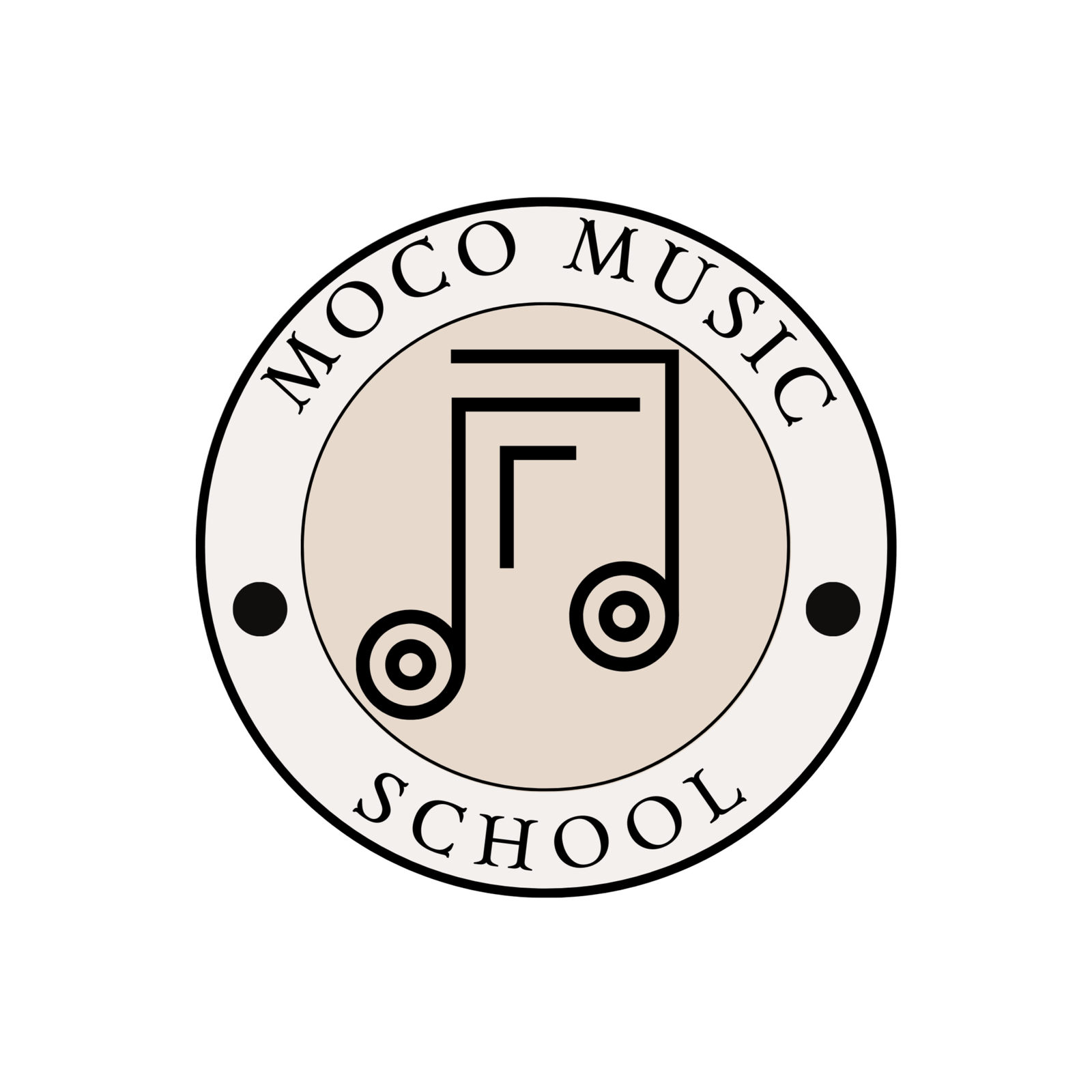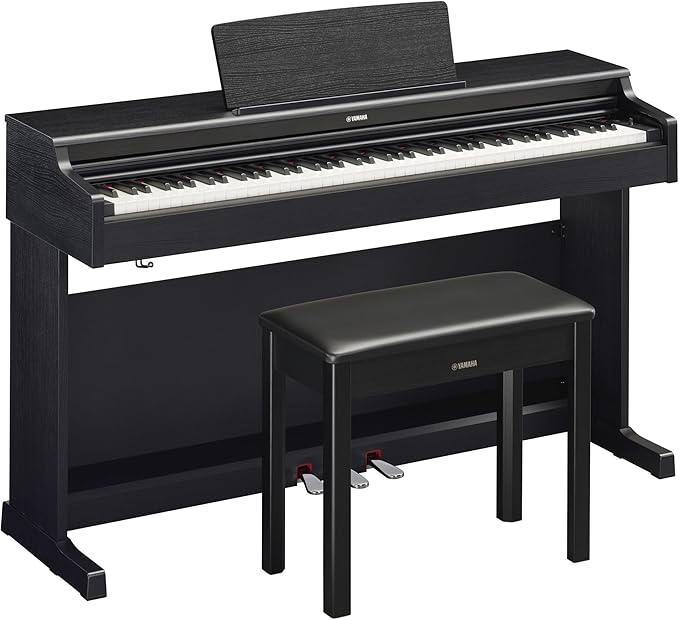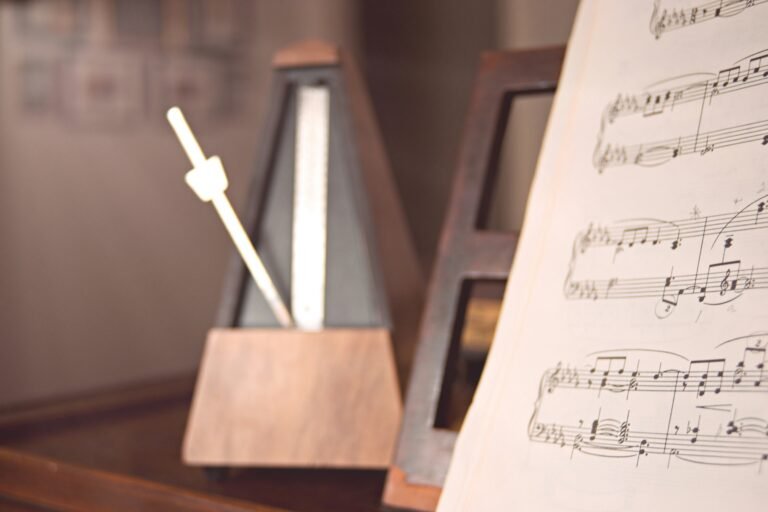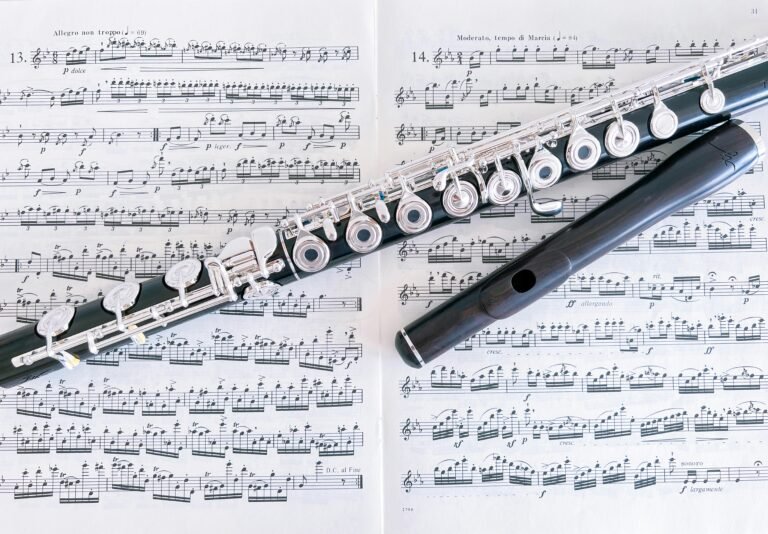FREE SHIPPING ON ALL DIGITAL PRODUCTS
Top 10 Piano Books for Beginners: Expert Reviews & Comparison (2025)
Finding the right piano book can make all the difference in your musical journey. Whether you’re an adult beginner, a parent looking for materials for your child, or a piano teacher seeking the best resources for your students, choosing the right book is crucial. The best piano books for beginners provide clear instructions, engaging content, and a structured approach to learning that keeps you motivated. In this comprehensive guide, we’ll explore the top 10 piano books that have proven effective for beginners of all ages.
Piano Books for Beginners: Quick Comparison
| Book Title | Author | Best For | Rating | Price | Action |
| Alfred’s Basic Adult Piano Course | Willard A. Palmer | Adult beginners | 4.7/5 | $16.99 | Buy Now → |
| Faber Piano Adventures Primer Level | Nancy & Randall Faber | Children (5-8) | 4.8/5 | $8.99 | Buy Now → |
| My First Piano Adventure | Nancy & Randall Faber | Young children (3-5) | 4.9/5 | $9.99 | Buy Now → |
| John Thompson’s Easiest Piano Course | John Thompson | Children (6-10) | 4.6/5 | $7.99 | Buy Now → |
| Accelerated Piano Adventures | Nancy & Randall Faber | Older beginners (8+) | 4.7/5 | $10.99 | Buy Now → |
| Bastien Piano Basics | James Bastien | Children (6-12) | 4.5/5 | $8.95 | Buy Now → |
| The Lang Lang Piano Method | Lang Lang | Children (5-10) | 4.6/5 | $12.99 | Buy Now → |
| Piano Book for Adult Beginners | Damon Ferrante | Adult beginners | 4.5/5 | $14.99 | Buy Now → |
| The Older Beginner Piano Course | James Bastien | Adult beginners | 4.4/5 | $11.95 | Buy Now → |
| Simple Songs: The Easiest Piano Songs | Hal Leonard | All beginners | 4.7/5 | $13.99 | Buy Now → |
Editor’s Choice: Alfred’s Basic Adult Piano Course
Alfred’s Basic Adult Piano Course earns our Editor’s Choice award for its exceptional balance of clarity, comprehensive instruction, and approachable progression. With nearly a century of refinement, this book has helped countless beginners develop proper technique while keeping them engaged.
What sets this book apart is its methodical approach to teaching both music theory and practical skills simultaneously. The lessons build logically, introducing new concepts at just the right pace to challenge without overwhelming. Each new skill is reinforced with enjoyable pieces that make practice feel rewarding rather than tedious.
Pros
- Clear, concise instructions with detailed illustrations
- Gradual progression that builds confidence
- Excellent balance of theory and practice
- Includes popular melodies that motivate practice
- Spiral binding allows the book to lay flat on piano
Cons
- Some may find the pace too slow
- Classical focus may not appeal to all learners
- Supplementary theory book recommended for deeper understanding
Detailed Reviews of the Top 10 Piano Books for Beginners
1. Alfred’s Basic Adult Piano Course
This time-tested method has been the go-to choice for adult beginners for decades. The book starts with fundamentals like hand position and note reading, then gradually introduces new concepts. What makes this book exceptional is how it balances theory with practice, ensuring you understand the “why” behind what you’re playing.
Pros
- Logical progression of concepts
- Clear explanations with illustrations
- Includes familiar melodies
Cons
- Some find the pace too slow
- Limited contemporary music
2. Faber Piano Adventures Primer Level

Ideal for children ages 5-8, the Faber Piano Adventures Primer Level introduces piano fundamentals through engaging illustrations and clear instructions. The book excels at teaching proper finger positioning and basic note reading while keeping young learners engaged with colorful pages and fun pieces.
Pros
- Colorful, engaging layout
- Introduces one note at a time
- Reinforces good hand position
Cons
- May need supplementary books
- Some pieces are repetitive
3. My First Piano Adventure

Perfect for very young beginners (ages 3-5), this book moves at a gentle pace with lots of colorful illustrations. It focuses on teaching finger numbers and keyboard geography before introducing staff reading, making it ideal for preschoolers just starting their musical journey.
Pros
- Designed specifically for young children
- Colorful, engaging illustrations
- Introduces concepts gradually
Cons
- Very slow progression
- May need teacher guidance
4. John Thompson’s Easiest Piano Course

This classic method book begins with teaching note reading on the staff right from the start. It introduces one note at a time, starting with middle C, and gradually expands outward. The book includes helpful worksheets that reinforce note names and rhythm values, making it excellent for developing strong reading skills.
Pros
- Strong focus on note reading
- Clear, uncluttered layout
- Includes helpful worksheets
Cons
- Moves quickly for very young beginners
- Less colorful than some competitors
5. Accelerated Piano Adventures

Designed for older beginners (8+ years), this book covers material more quickly than standard beginner books while maintaining a clear, step-by-step approach. It’s perfect for older children, teenagers, and adults who want to progress faster without skipping important fundamentals.
Pros
- Faster progression than standard books
- Age-appropriate content
- Comprehensive coverage of basics
Cons
- May move too quickly for some
- Less detailed explanations
6. Bastien Piano Basics
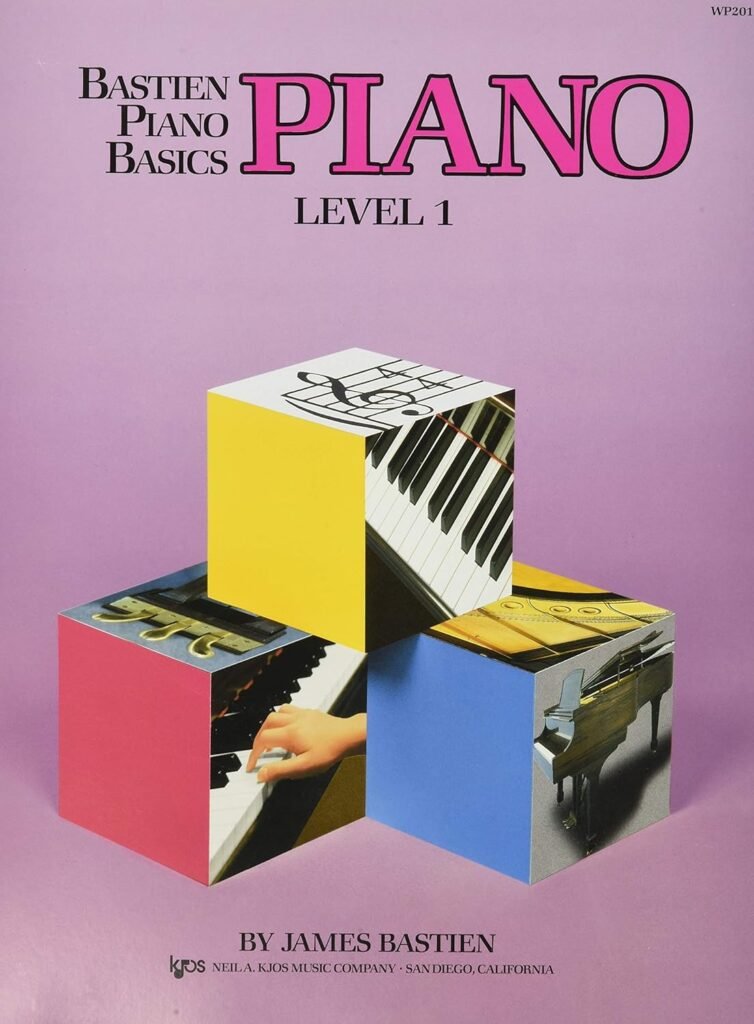
The Bastien series offers a comprehensive approach divided into four areas: Performance, Theory, Technique, and Piano Pieces. This multi-book approach ensures well-rounded development. The books feature clear explanations and a good variety of musical styles to keep students engaged.
Pros
- Comprehensive four-book approach
- Well-structured progression
- Good variety of musical styles
Cons
- Need to purchase multiple books
- Some find the visual design dated
7. The Lang Lang Piano Method
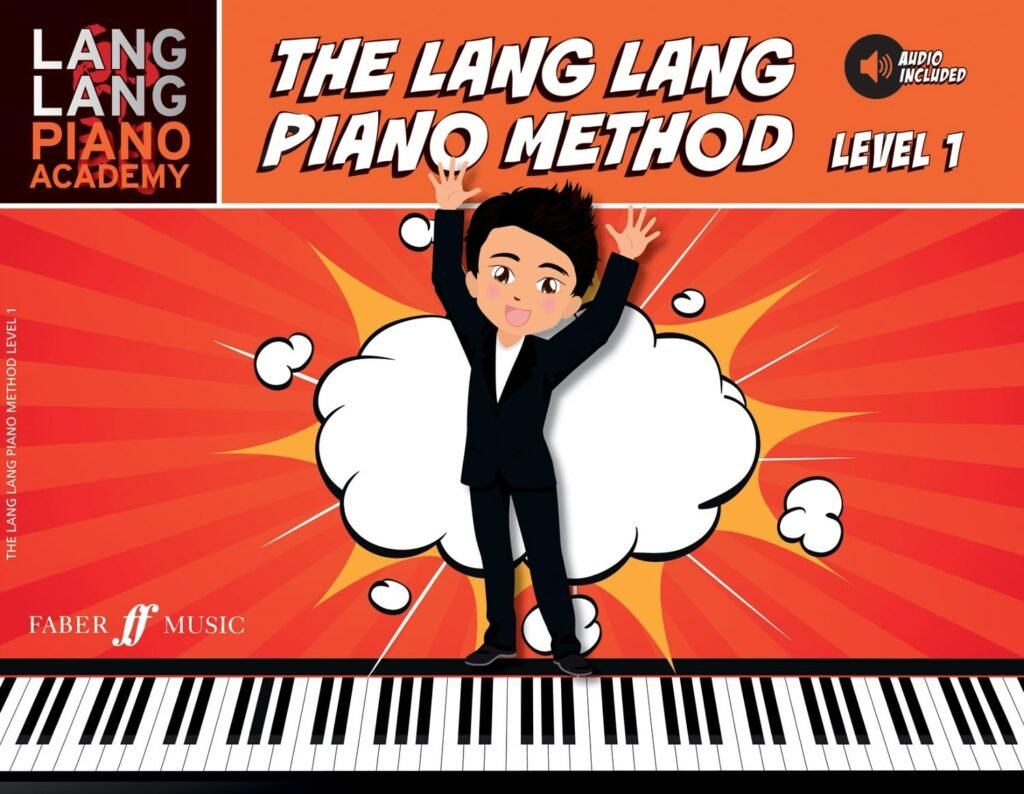
Created by world-renowned pianist Lang Lang, this method book combines traditional learning with fun illustrations and engaging characters. The five-level series progresses from basic concepts to more advanced techniques, with each book building upon the previous one’s foundation.
Pros
- Created by a world-class pianist
- Engaging cartoon characters
- Clear explanations and illustrations
Cons
- Relatively new method (less proven)
- Some find the cartoon approach distracting
8. Piano Book for Adult Beginners
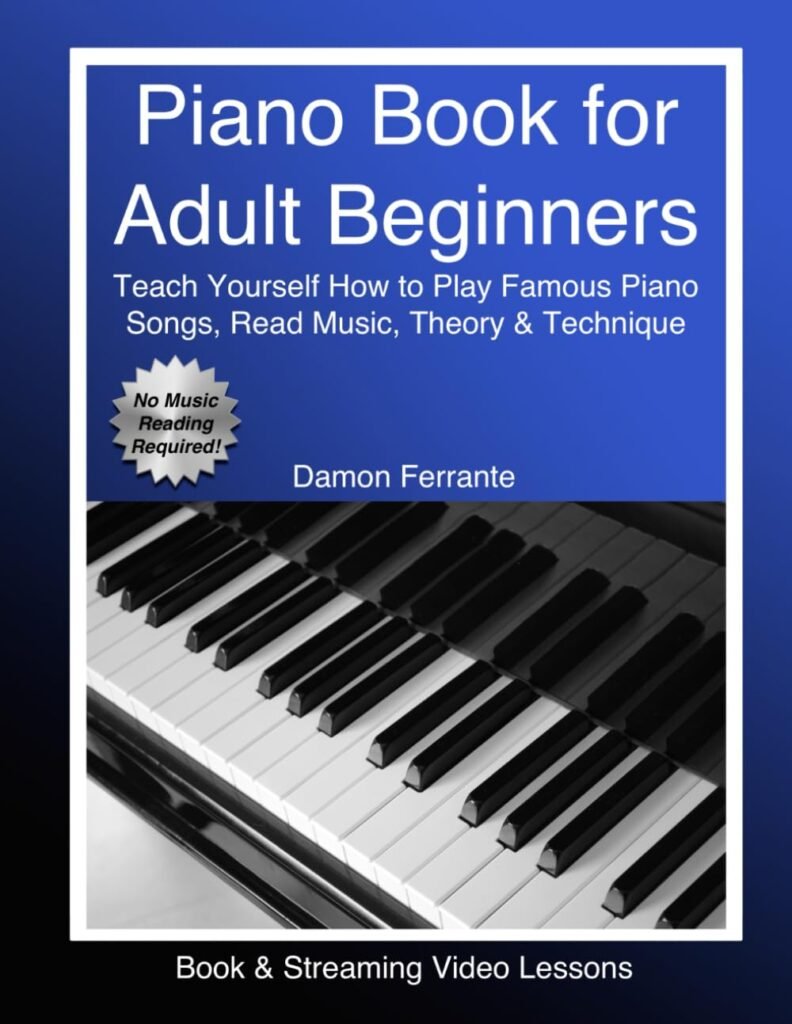
Recommended by Rolling Stone Magazine, this book by Damon Ferrante offers a step-by-step approach to learning famous songs without requiring prior music reading skills. It comes with online video and audio resources, making it perfect for self-teaching adults who want to play recognizable tunes quickly.
Pros
- Includes popular, recognizable songs
- No music reading required initially
- Comes with online video resources
Cons
- Less emphasis on traditional theory
- May create gaps in fundamental knowledge
9. The Older Beginner Piano Course
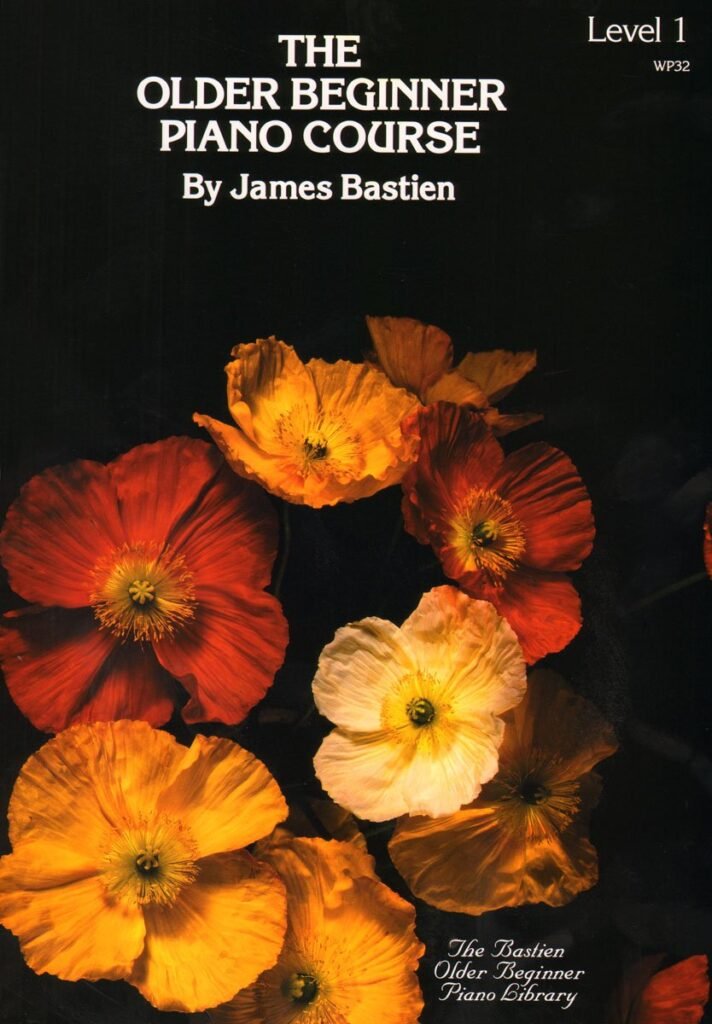
Specifically designed for adult beginners, this book by James Bastien provides a clear path for self-teaching. It builds progressively on concepts, allowing adults to develop skills at their own pace. The book includes a good mix of exercises and pieces that appeal to mature beginners.
Pros
- Designed specifically for self-teaching
- Age-appropriate content and examples
- Progressive skill building
Cons
- Some find the pieces less engaging
- Limited supplementary materials
10. Simple Songs: The Easiest Piano Songs

Published by Hal Leonard, this collection features simplified arrangements of popular songs that beginners can play right away. It’s an excellent supplementary book for any method, providing motivation through recognizable tunes that sound impressive despite their simplified arrangements.
Pros
- Contains well-known, popular songs
- Simplified arrangements for beginners
- Provides immediate satisfaction
Cons
- Not a complete method book
- Limited teaching of fundamentals
What to Consider When Choosing a Piano Book for Beginners
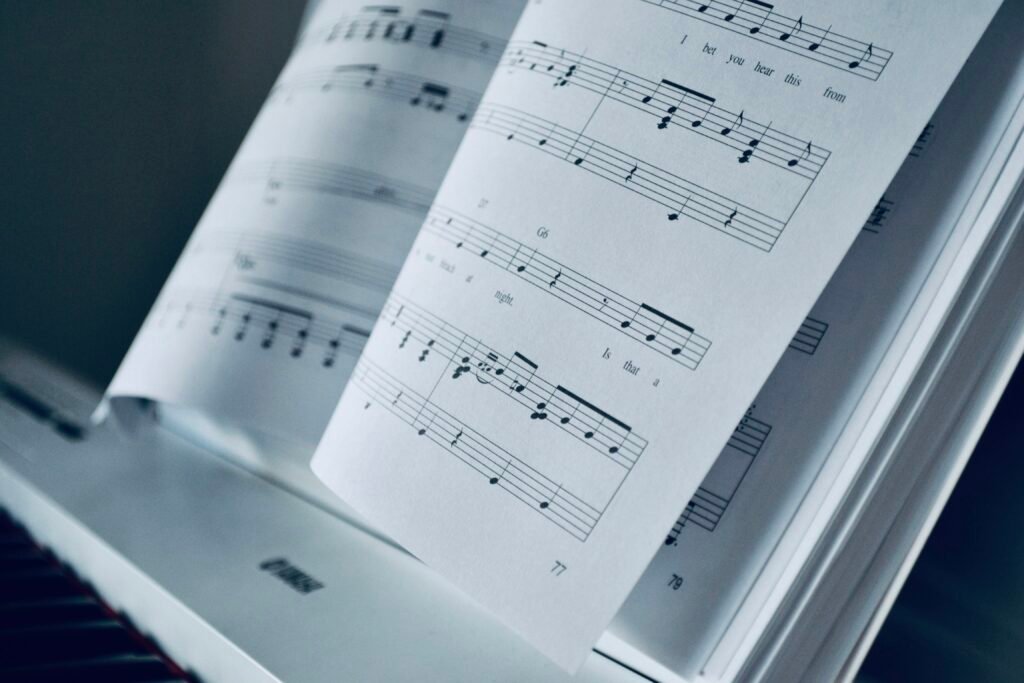
Finding the right piano book depends on several factors. Here are some key considerations to help you make the best choice:
Age and Learning Style
Young children (3-5) need colorful books with simple concepts. Older children and adults can handle more text and faster progression. Consider how you or your child learns best—through visual aids, step-by-step instructions, or by playing familiar tunes.
Musical Goals
Are you interested in classical music, pop songs, or just learning the basics? Some books focus heavily on classical training, while others incorporate popular music. Determine what kind of piano playing you want to learn and choose accordingly.
Learning Environment
Will you be working with a teacher or learning on your own? Some books are designed specifically for self-teaching with clear instructions, while others work best with a teacher’s guidance. Consider your learning situation when making your selection.
Frequently Asked Questions About Piano Books for Beginners
Do I need a teacher to learn piano from these books?
What age is appropriate to start learning piano?
Should I buy multiple books or just one to start?
How long does it take to complete a beginner piano book?
Final Thoughts on Choosing the Best Piano Book for Beginners
The journey of learning piano is rewarding but requires the right resources to start on the right foot. The best piano books for beginners provide clear instruction, engaging content, and a structured approach that builds skills progressively. Our top recommendation, Alfred’s Basic Adult Piano Course, offers an excellent balance of theory and practice that has stood the test of time.
Remember that the “best” book ultimately depends on your specific needs, age, and learning style. Many successful pianists use a combination of resources rather than relying on a single book. Whichever book you choose, consistent practice is the key to progress.
Ready to Start Your Piano Journey?
Choose from our top-rated piano books for beginners and take the first step toward mastering this beautiful instrument.
